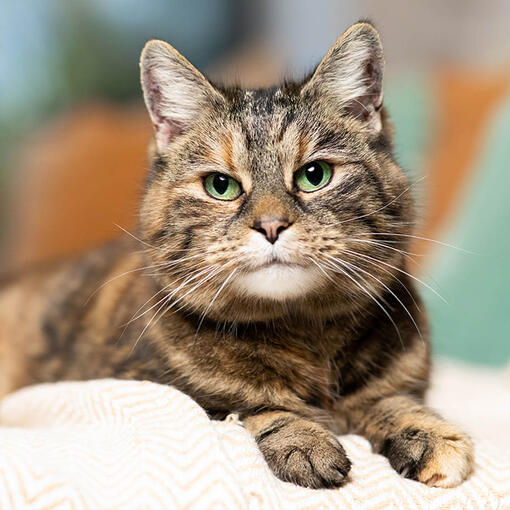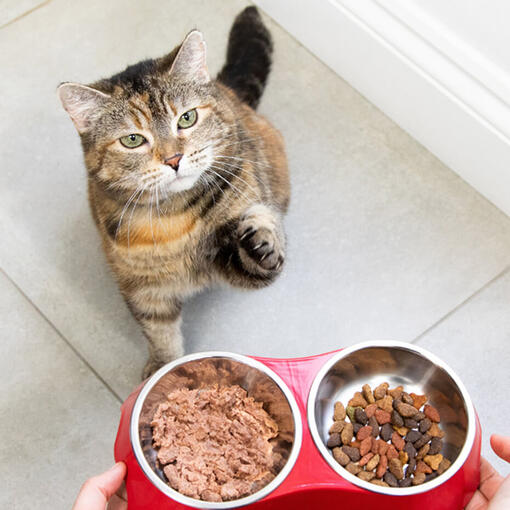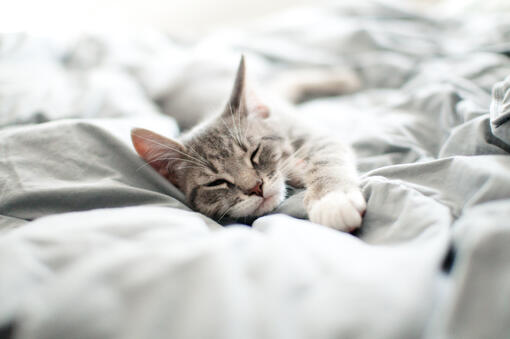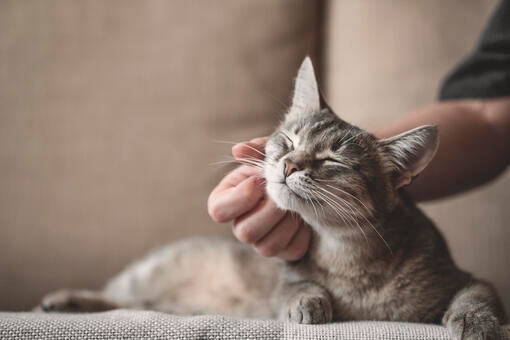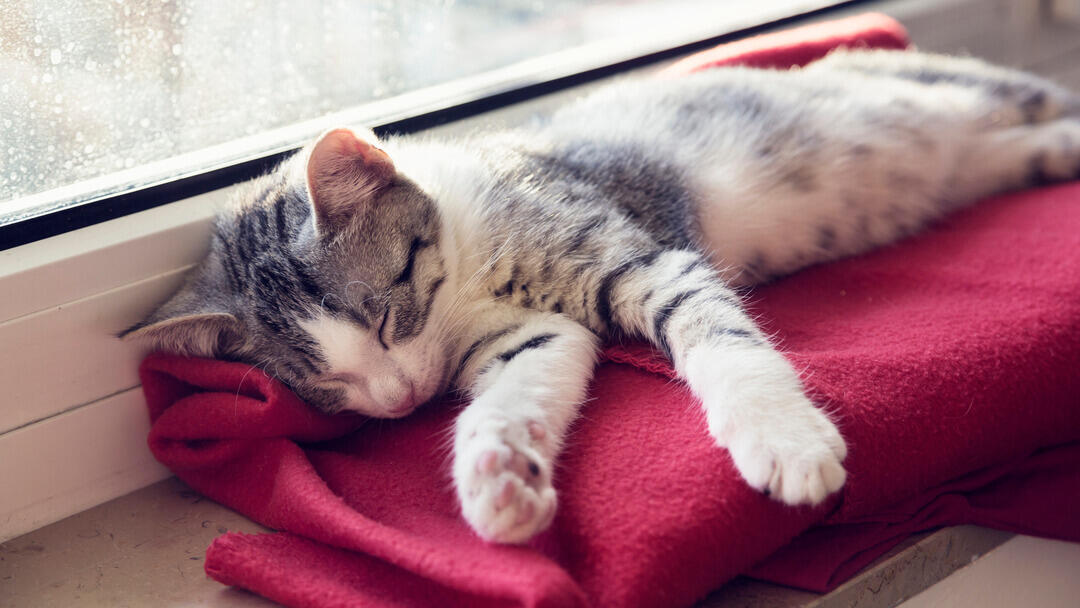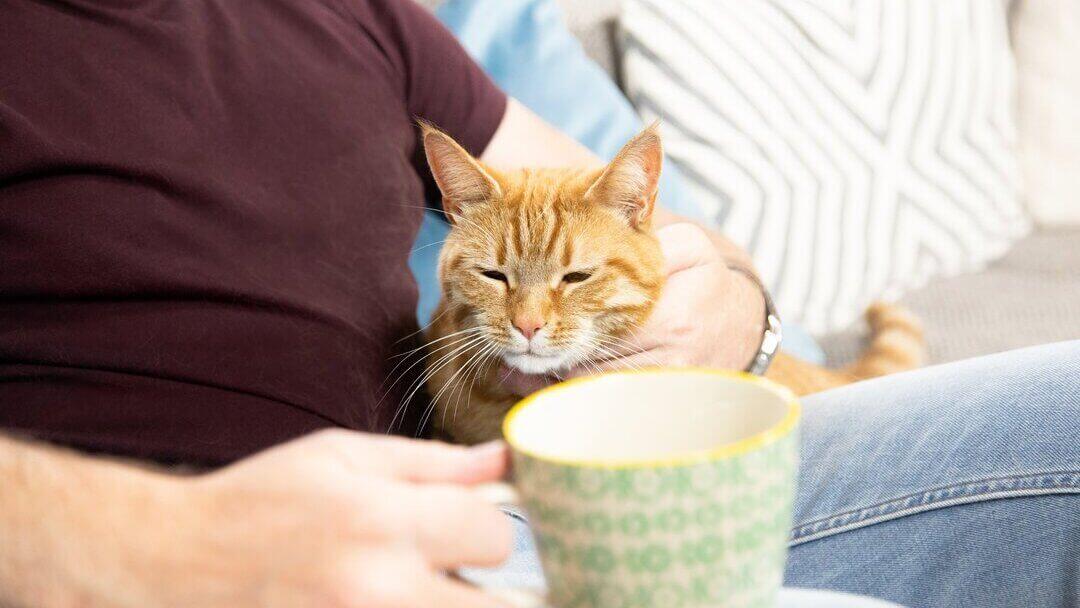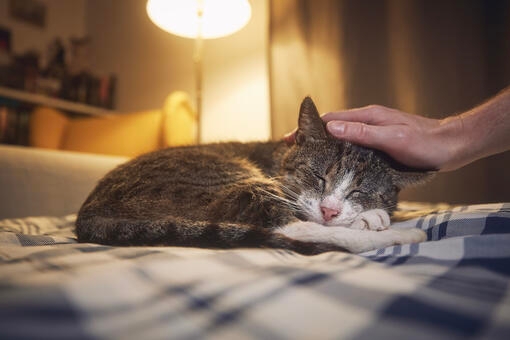
As your cat ages, their sleep patterns might change. Older cats may sleep more, with their energy levels simply decreasing with age. Other times, senior cats might sleep more during the day, saving their energy for evenings and nighttime explorations. While you might find this a little disruptive, it's a natural shift in their sleep cycle. Learn how to understand these sleeping patterns and create a cosy sleep haven to ensure they get the rest they need.
Common Changes in Older Cats' Sleep Patterns
How Many Hours Do Cats Sleep
Ever wondered how long cats sleep for? It's a question many cat owners ponder, especially as their feline companions seem to spend a lot of time napping. Cats do manage to fit in a lot of quality catnaps, but this can be especially noticeable as cats age. Older cats can sleep anywhere from 16 to 20 hours a day, compared to the 12-15 hours of adult cats. This increased need for sleep is attributed to decreased energy levels and a more relaxed lifestyle.
Some maintain their nighttime activity levels but sleep most of the day to conserve that nocturnal energy. So, if your senior cat seems to be sleeping more than usual, or their sleep patterns change, it's likely nothing to worry about. However, if you're ever concerned about a sudden change in your cat's sleep patterns, especially if you see other symptoms, it's always best to consult your vet.
Senior Cat Sleep-Wake Cycles
Another common change is a shift in sleep-wake cycles. While cats are crepuscular, in other words more active at dawn and dusk, older cats may become more active at night and sleep more during the day. This can sometimes be disruptive for owners, especially in the case of indoor cats, but it's important to remember it's a natural shift and rarely a cause for concern.
If you have a cat who has constant access to the great outdoors, you might not notice that they are more active at night, just noticing that they are sleeping more during the day. If you think this is the case, you could monitor the cat flap with a webcam to get an idea of their nighttime wanderings.
Factors Affecting Sleep in Older Cats
Several factors can influence your older cat's sleep quality:
- Environmental Factors and Comfort
No matter what the age of your cat, environmental factors like loud noises, constant disruption, uncomfortable bedding, or a lack of appropriate sleeping areas can affect sleep quality.
- Senior cat care: Health Issues Impacting Sleep
Underlying health conditions, such as arthritis, hyperthyroidism, or cognitive dysfunction, can disrupt sleep patterns. Pain from arthritis can make it difficult for your cat to get comfortable, and hyperthyroidism can cause restlessness.
Health Concerns Related to Sleep Disturbances
While increased sleep is normal for older cats, significant and/or sudden changes in sleep patterns can sometimes indicate underlying health issues.
Signs to watch for include excessive vocalisation at night, restlessness, pacing, difficulty settling, or changes in litter box habits or loss of toilet training.
If you notice any concerning changes in your cat's sleep patterns, consult your veterinarian to rule out any medical conditions.
Tips for Promoting Healthy Sleep in Older Cats
Ideal Sleeping Areas and Bedding for Older Cats
Provide multiple, easily accessible sleeping areas throughout the house in places where your cat won’t be disturbed. These should be at a variety of heights and places your cat enjoys hanging out (such as a sunny window ledge) but you need to ensure easy access (so consider using ramps etc). Sometimes if a cat is feeling stiff or a bit sore, they will sleep in a less-favoured spot that they can access easily and without pain, but this might be somewhere uncomfortable or somewhere they can’t relax and get good quality sleep.
Choose soft, supportive bedding that allows for easy stretching and accommodates any stiffness. Explore other top tips for choosing the right cat bed with Purina.
Sometimes if a cat is feeling stiff or a bit sore, they will sleep in a less-favoured spot that they can access easily and without pain, but this might be somewhere uncomfortable or somewhere they can’t relax and get good quality sleep.
Choose soft, supportive bedding that allows for easy stretching and accommodates any stiffness. Explore other top tips for choosing the right cat bed with Purina.
Managing Noise and Disturbances
Minimise disruptions by keeping loud activities to a minimum. Make sure you give your cat quiet places to sleep so they can access peace and quiet.
Establishing a Routine
While understanding that it is natural for cats to be active in the evenings and the early part of the night, you can help encourage a nighttime sleep schedule with regular feeding times and playtime before bed. Creating a consistent routine can be helpful for promoting healthy sleep in older cats. Here are things you can think about to help with routine:
Set regular feeding times
Feed your cat at consistent times throughout the day, using the most suitable senior cat food for your companion, with the last meal being close to bedtime. This helps regulate their digestive system and toileting needs, and helps prepare them for a night of sleep.
Schedule playtime
Engage your cat in gentle playtime before bedtime. This helps burn off some energy and promotes relaxation. Keep play sessions short and focused on low-impact activities they can manage, like feather wand toys or puzzle feeders.
Maintain a consistent sleep environment
If you have an indoor cat, keep their sleeping areas quiet and undisturbed throughout the night.
Minimise disruptions
Consistency is key, so try to maintain a predictable nighttime routine that allows your cat to settle comfortably for sleep. If you know you are likely to need to get up in the middle of the night, try to not disturb your cat.
By implementing these tips and establishing a consistent routine, you can help encourage your older cat to keep to their regular routine as they age, and promote restful sleep for a happier and healthier cat.
Conclusion
By understanding the changes in your ageing cat's sleep habits and creating a comfortable sleep environment, you can ensure your senior cat gets the rest they need to live a happy and healthy life. Remember, any significant changes in sleep patterns warrant a visit to the veterinarian to ensure your cat's wellbeing.
Find out how old your feline companion is in human years using the age calculator below:
My cat is
under
1
years old
year old

